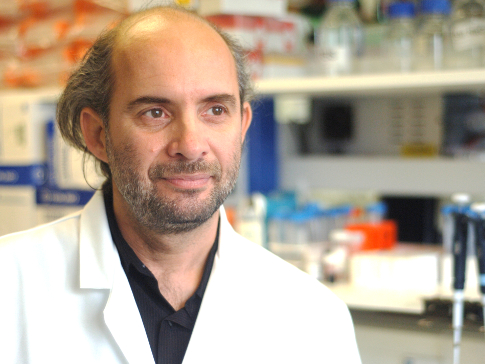Scientists have discovered a new way to target cancer cells and prevent them from dividing properly, causing them to die.
Researchers at The Institute of Cancer Research, London, proved for the first time that a group of proteins known as the anaphase-promoting complex (APC/C) plays a vital role in enabling cancer cells to divide successfully. This complex could therefore be targeted with drugs to prevent cancerous cells from dividing.
Cell division is directed by centrosomes, protein complexes within cells which map out the positioning of mitotic microtubules, also known as spindles, which act as the axis upon which the cell divides. This mechanism ensures that the chromosomes are split evenly between the two new cells formed during cell division.
Unlike normal cells, cancer cells often produce more than two centrosomes during cell division which can ‘confuse’ the cell into dividing on multiple axes, causing the cell to die. To overcome this, cancer cells cluster multiple centrosomes together so that the cell can successfully divide on one axis.
The research was funded by Breakthrough Breast Cancer and published in the journal Nature Communications.
Study team leader, Dr Spiros Linardopoulos, Leader of the Drug Target Discovery Team at the ICR, said: “The mechanism of clustering centrosomes together in order to divide correctly is a common property of cancer cells which allows them to survive, but it’s also a vulnerability that we now know how to exploit.
“We used a molecular screening method to ‘block’ cancer cells from producing proteins known to be involved in centrosome formation and positioning to search for what exactly it is driving the clustering mechanism that enables cancer cells to divide. This technique allowed us to show for the first time that the APC/C complex is an essential regulator of centrosome clustering within cancer cells and that inhibiting this process could hold the key to a raft of new, targeted treatment opportunities.”
Dr Matthew Lam, Senior Research Officer at Breakthrough Breast Cancer, said: “We’ve known for some time that the APC/C complex controls the cell cycle and cell division but these findings mark a huge step forward in terms of the unique function that we now know APC/C to have. For example, APC/C could be used as a target for drugs to selectively kill cancer cells, and not just breast cancer cells but any cancer cell which relies on centrosome clustering to successfully divide.”
Dr Linardopoulos joined the Breakthrough Toby Robins Breast Cancer Research Centreat the ICR as a study team leader in 2000. His work focusses on trying to find new ways to target breast cancer cells and then matching the findings to potential treatments.
